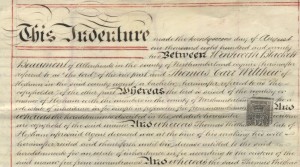 It can be difficult to find ideology in the dry world of private law. Undergraduates are often attracted to the more controversial parts of the law – for instance, public law – where ideology is overt. The only real difficulty is, however, the need to look a little bit harder.
It can be difficult to find ideology in the dry world of private law. Undergraduates are often attracted to the more controversial parts of the law – for instance, public law – where ideology is overt. The only real difficulty is, however, the need to look a little bit harder.
The case of M&S v BNP Paribas concerned the exceedingly dry topic of the implication of terms into a contract. This case in effect overturned the previous leading case, Belize Telecom. It was a commonly-held view that the effect of Belize Telecom was that the court could imply terms that were not expressly put in a contract simply with reference to the process of construing the parties’ intentions. The law was not constrained by the restrictive ‘officious bystander’ and ‘business efficacy’ tests. It was a case of determining what was agreed. But this was said to be ‘wrong in law’ in BNP Paribas.
What possible ideological change could this have wrought? I suggest that it reflects acceptance by the senior judiciary, contrary to previous trends, that the private law cannot be made wholly subordinate to what persons and institutions want it to be without reference to external norms and community standards – what Alastair Hudson calls ‘autopoiesis’. Instead, the courts are recognising that private law, to some extent, has to be subordinate to external norms and standards. In short, private law cannot be privatised.